News
Neuse Riverkeeper talks development, environmental impact with Durham Ruritans
Education, Environmental, Neuse River Watershed, Outreach, Sound Rivers
Posted on April 20th, 2023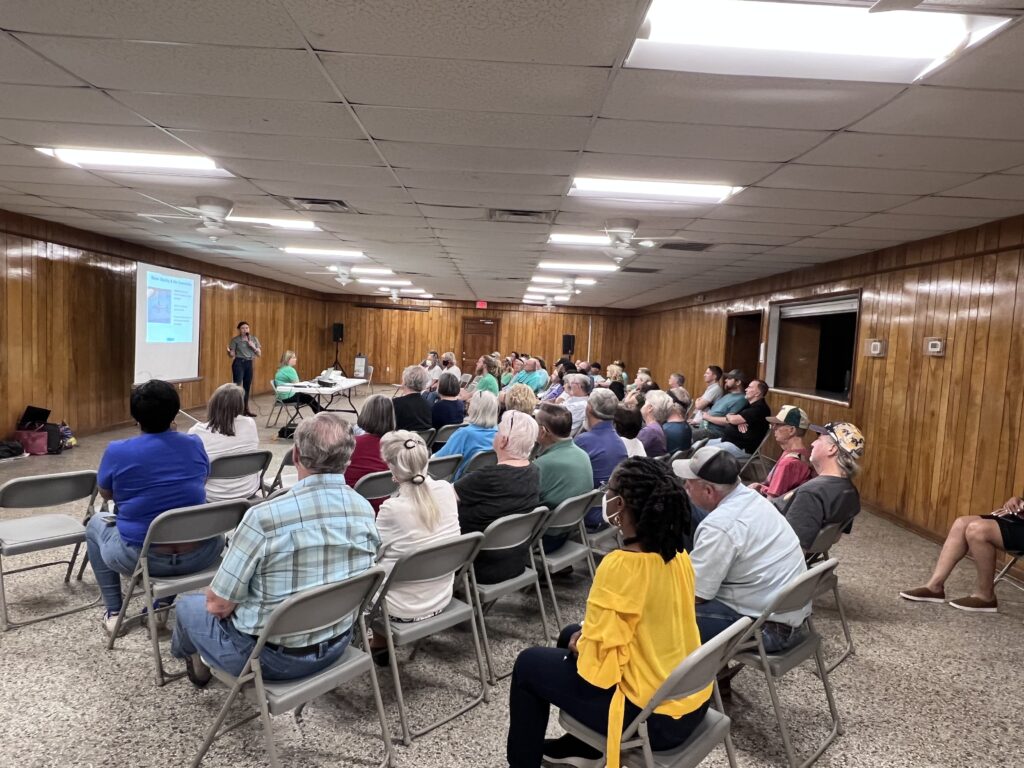
Residents of rural Durham are worried about how quickly the landscape around them is changing.
Neuse Riverkeeper Samantha Krop was on hand at a meeting of the local Ruritan Club this week, where the community spoke out about the annexation of county land into the city, as well as the number and impact of developments being built.
“They had quite a showing of locals, a lot of whom are very concerned about the effects of development in their community,” Sam said. “That’s southeast rural Durham County, in the Lick Creek, Little Creek and Panther Creek watersheds, all of which are seeing a lot of development, all at once. The focus of the evening was the development and environmental consequences, and the effects that it’s having their communities.”
Since Sam has been monitoring the Lick Creek watershed for nearly a year, tracking the erosion off of construction sites and resulting sedimentation in local creeks, she was invited to share her data.
“These folks are seeing their neighborhoods and communities transformed before their eyes. They’re seeing big swathes of undeveloped, forested areas turned into clearcuts, like moonscapes,” Sam said. “Many of them are on land that’s been in the family for multiple generations, and they’re seeing the creeks that their families grew up playing in turn to dirt, and they are concerned.”
And many of the residents feel helpless, because though they live in the county, the city of Durham is annexing the land and providing city services to the newly annexed land to pave the way for development, while those already there, as county and not city residents, have no say in what’s happening.
“I think it’s an issue of local democracy as a well as an environmental concern,” Sam said. “There were lots of questions about what kind of power they have. People want to know what they can do, because it is concerning and alarming stuff. The best way to address this is for community members to show up and speak about it local council meetings. That was the biggest takeaway, was to get involved.”
Related News
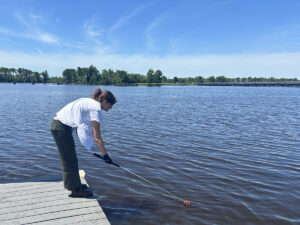
New this week: interns and a Swim Guide launch!
May 22nd 2025

Riverkeeper throws plastic in the water — for good reason
May 22nd 2025

Sound Rivers steps up Rocky Mount sampling
May 22nd 2025

Stormwater Ed with art, tag and making a mess
May 22nd 2025
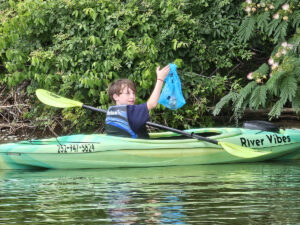
Cleanup Day on the Pamlico draws crowd
May 22nd 2025
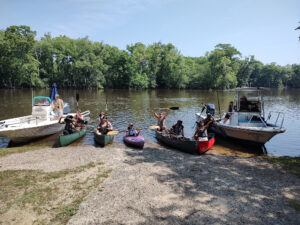
Riverkeeper takes Sound Rivers mission to the water
May 22nd 2025

Litter-Free Rivers update: Clayton
May 22nd 2025
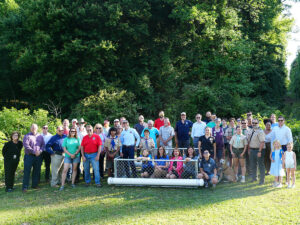
Clayton goes Litter-Free!
May 15th 2025

